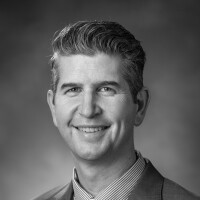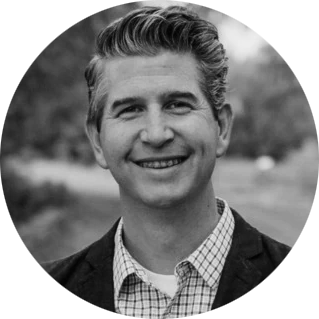Mormons and Blacks in the Early Church
So now more on Mormon views on black people, let’s fast forward to June 1st, 1978, when we’re missing two of the members of the Quorum of the Twelve who are out on other assignments, but we have the First Presidency and ten of the Twelve there in their normal meeting that happens every week, and they’ve come in the spirit of fasting. President Kimball asked them to come fasting. And so, President Kimball told the Church News of that day, quote, we held a meeting of the Council of the Twelve in the temple on the regular day.
We considered this very seriously and thoughtfully and prayerfully. I asked the Twelve not to go home when the time came. I offered the final prayer, and I told the Lord if it wasn’t right, if he didn’t want this change to come to the Church, that I would be true to it all the rest of my life. We had this special prayer circle, and then I knew that the time had come.
Others have said, have reported who were there, that he asked them if they would be willing to join him in a prayer circle there in the temple, and he asked if it would be okay with them if he acted as the voice in that prayer circle.
Can you imagine the meekness of God’s prophet, Spencer W. Kimball, who had been through so many surgeries and had so many health challenges and this kneeling, pleading, humble, meek prophet of God, surrounded by the other members of the First Presidency and the Quorum of the Twelve, pouring his heart out to the Lord saying, can we please have your permission? Is it the right time? Is it the right thing to do regarding Black Mormons? And everyone, to a man who was there, said that the conduits of heaven opened up.
Oh yeah, it was like a conduit opened to heaven. They called it Pentecostal. This is President Kimball’s own summary from it.
Quote, we had a glorious experience of having the Lord indicate clearly that the time had come when all worthy men and women everywhere can be fellow heirs and partakers of the full blessings of the gospel. Again, it might even tie a little bit into what we just talked about with the official declaration 1, that the focus is always on covenant commitment to the Lord and receiving the ordinances of exaltation. That’s motivating what’s happening here.
I want you to know as a special witness of the Savior how close I have felt to him and to our Heavenly Father as I have made numerous visits to the upper rooms of the temple, going on some days several times by myself, the Lord made it very clear to me what was to be done, end of quote.
Now did you notice? This is God’s prophet. He holds all of the keys to administer the ordinances of the gospel on the earth. He’s the only one authorized to do that. And he had to go many days, many weeks, months, years, doing lots of homework, studying it out, asking others to help him study it out, and it’s years in the making regarding Blacks in Mormonism. And yet, when I have a serious question, how easily and how quickly I get frustrated with God and disturbed that he won’t answer my question.
I’m fasting for goodness sakes and I’m doing my best to live the gospel and I need an answer. I love this pattern of Spencer W. Kimball who was incidentally the prophet of my youth. That was the voice of the prophet that I was raised with because President Harold B. Lee passed away when I was only 20 days old. So I grew up with President Spencer W. Kimball as the voice of God’s prophet and I love that man for sticking with this long process and I want to be more like him in that regard.
I don’t want to throw a tantrum when I don’t get the answer when I first ask. I want to keep working through it.
So if it’s okay, let’s talk about a few other applications. How do we, from this, how do we approach statements in the past connected to this policy? How do we look at racism in the Church and in the world today? Guidance from our prophet. And then third, maybe it’s just some perspectives on the ongoing restoration.
Let’s do it. And so, it’s important, if you read the Church’s essay on this, the word that they use is that the Church disavows any of the explanations trying to give justification or reasons for why the Mormon priesthood ban was put into place. So it’s important, you know, that Elder Holland even said this one time, I have to concede to my earlier colleagues, they, I’m sure in their own way, were doing the best they knew to give shape to the policy, to give context for it, even to give history to it.
All I can say is, however well intended their explanations were, I think almost all of them were inadequate and or wrong, end of quote. And Bruce R. McConkie said, we spoke with limited understanding. And so, when you hear different things, and sadly, they do get perpetuated still in the Church today, please be one of the first to say, there aren’t those reasons. We don’t support that. That’s not our doctrine. We don’t believe that as a whole.
It’s a good application, too, for us today that sometimes there are certain policies or practices within the Church, and sometimes we want to give reasons for the practice. When the reasons haven’t necessarily been revealed or made clear, that sometimes is when we create harm and hurt and problems that future generations have to clean up.
Absolutely. to take the place of God, giving the reasons why, or even sometimes the implementations of some of the how of things that have been revealed, that’s dangerous because that’ll often come back to bite us down the road. And I love being meek enough to say, we don’t know. It hasn’t been revealed.
For more information regarding Blacks and the Priesthood visit WhatDoMormonsBelieve.org.

By Dr. Anthony Sweat, Source Expert
Dr. Anthony Sweat serves as a leading authority on the topic of “Mormonism Explained” He holds a BFA in painting and drawing from the University of Utah and achieved his MEd and PhD in curriculum and instruction at Utah State University. Before assuming his role in the religion faculty at BYU, he accumulated thirteen years of experience working with Seminaries and Institutes of Religion. Dr. Sweat is a prolific author with numerous publications centered on the teachings of the Church of Jesus Christ of Latter-day Saints. His research primarily investigates the factors influencing effective religious education. Anthony and his spouse, Cindy, are proud parents to seven children and make Springville, Utah, their home.

Fact Checked by Mr. Kevin Prince, Source Expert
Kevin Prince is a religious scholar and host of the Gospel Learning Youtube channel. His channel has garnered over 41,000 subscribers and accumulated over 4.5 million views. Mr. Prince also created the Gospel Learning App, a reliable platform where individuals seeking truth can access trustworthy answers to religious questions from top educators worldwide.
About Mormonism Explained
Mormonism Explained is a resource that was designed to provide objective and factual information about Mormonism, its history, doctrines, and policies. Our team of researchers consults experts and primary sources to present factual information on a variety of topics relevant to the Mormon Church.
Tags

